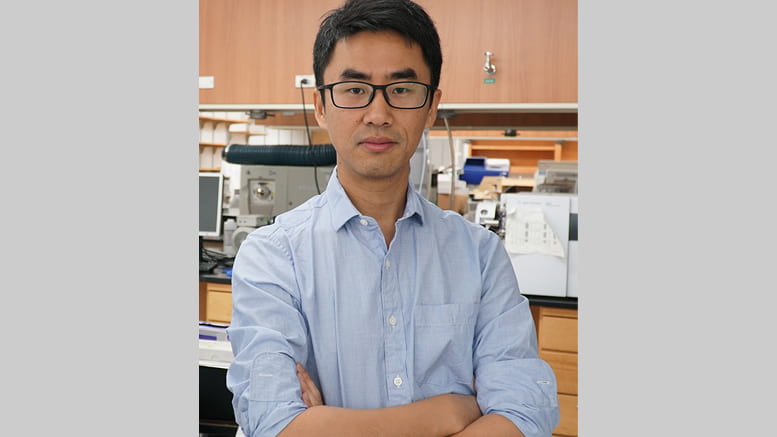Weinberg College welcomes Assistant Professor Xiaoyu Zhang to the Department of Chemistry! He describes his current research and what he finds most fulfilling about teaching.
Where are you from? Where did you study?
I grew up in Shenyang, China. I obtained bachelor’s and master’s degrees at Zhejiang University (major in pharmaceutical science). Then I came to the US and did my PhD at Cornell University (major in Chemical Biology). I received postdoctoral training in Chemical Biology and Proteomics at The Scripps Research Institute before joining Northwestern.
Please describe your research.
Conventional small molecule drugs act by directly occupying and inhibiting the functions of disease-driven proteins. Many proteins, however, lack functional pockets for rational drug design and are considered challenging to target with small molecules, or even ‘undruggable’. Expanding druggable space not only requires technological innovations that facilitate novel ligand discovery, but also needs new small molecule therapeutic modalities that could alter protein functions through novel mechanisms. My laboratory employs advanced mass spectrometry-based chemical proteomic technologies to discover new small molecule therapeutic modalities, including protein degraders, protein stabilizers and cancer neoantigen inducers/modifiers, that modulate disease pathways or targets in different ways from conventional occupancy-driven small molecule therapies. The long-term goal of my laboratory is to push the boundary of druggable space that eventually enables new small molecule therapeutics.
What are you working on right now that excites you the most?
I am currently working on developing new proteomic approaches that would enable novel chemical tool and ligand discovery. These new approaches have the potential to expand druggable space and provide solutions for diseases that are previously challenging to be targeted with small molecules.
What accomplishments would you like to share?
By leveraging chemical biology approaches, I have discovered two E3 ligases that can be pharmacologically controlled to promote targeted protein degradation. By harnessing these two E3 ligases, I have successfully degraded oncogenic proteins such as BRD4 and Androgen Receptor. These exciting discoveries have been patented. I am currently working on pushing these early-stage discoveries to the translational stage that may eventually advance human health.
What is most fulfilling to you about teaching?
The true value of a successful scientific researcher is not only in their academic achievements, but also in their ability and dedication as an educator to mentor and cultivate new generations of professionals. I enjoy teaching because it not only gives me the opportunity to deliver my knowledge to the young generation, but also allows me to build understanding and respect with my students.

